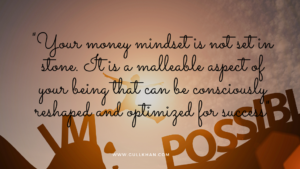Today, I am bursting with excitement as we delve into one of my absolute favorite topics: the laws of the universe. Buckle up because we’re about to embark on a journey through seven fundamental laws that govern our existence. Now, I know what you’re thinking – seven laws in one blog? Don’t worry, I’ve got you covered.
Law #1: Law of Perpetual Transmutation
Now, this law may sound complex, but at its core, it’s a powerful reminder of the creative force that permeates our existence.
So, what exactly is the Law of Perpetual Transmutation? In essence, it tells us that energy is in a constant state of flux, forever flowing from the spiritual realm into the physical world. Every thought, every idea, every image we hold in our minds has the potential to manifest into physical form.
Imagine this: the hand cream you use daily, the very one sitting on your dresser right now, was once just a mere thought in someone’s mind. Perhaps it started as a fleeting idea, a spark of inspiration. But as that idea was nurtured, visualized, and infused with intention, it gradually transformed into a tangible product, ready to be used and enjoyed.
Now, here’s where things get fascinating. The images we hold most prominently in our minds have the power to shape our reality. Whether consciously or unconsciously, the thoughts we repeatedly dwell upon become seeds planted in the fertile soil of our subconscious. And just like seeds, they germinate and eventually sprout into physical form.
But here’s the catch – this process doesn’t happen instantaneously. It’s not about fleeting thoughts or passing whims. Instead, it’s the continuous, unwavering focus on a particular idea that catalyzes its manifestation. Think of it as the steady drip of water carving its path through solid rock. The more consistently and intensely we visualize our desires, the sooner they materialize in our lives.
Now, you might be wondering, what about those random, fleeting thoughts that flit through our minds? The ones that we barely acknowledge before they vanish into the ether? Rest assured, the Law of Perpetual Transmutation operates on the principle of dominance. It’s the thoughts and images that we consistently dwell upon, whether consciously or unconsciously, that hold the most power. So, while a passing thought of negativity or fear may momentarily cross our minds, it lacks the sustained focus necessary to manifest into reality.
But here’s where it gets interesting – this law works both ways. Just as our positive thoughts and intentions have the power to shape our reality, so too do our negative ones. Imagine, for a moment, a fleeting image of tragedy or misfortune crossing your mind. If the Law of Perpetual Transmutation worked instantaneously, that grim vision would materialize before you in an instant. But thankfully, it doesn’t operate in such a haphazard manner.
Instead, it’s the consistent, repetitive thoughts and emotions that we attach to our desires that determine their manifestation speed. The more vividly we visualize our goals, the more passionately we infuse them with emotion, the faster they materialize.
Law #2: The Law of Relativity
Now, buckle up, because this law is a game-changer, offering profound insights into the nature of existence itself. At its core, it teaches us that in the grand scheme of the universe, nothing is inherently good or bad, big or small. Instead, everything simply is. It’s a powerful reminder that our perception shapes our reality, and how we interpret events determines their significance.
Think about it for a moment. From the perspective of the universe, whether you receive one pound, a million pounds, or a billion pounds, it’s all the same. The universe operates on the principle of abundance, with infinite possibilities available to us at any given moment. Whether our desires manifest in modest or extravagant forms is inconsequential to the universe.
The Law of Relativity invites us to shift our perspective on life’s challenges and triumphs. When faced with adversity – whether it’s a breakup, a job loss, or a betrayal – it’s easy to succumb to the victim mentality, spiraling into a vortex of self-pity and despair. Every circumstance, no matter how dire, carries within it the seeds of growth and opportunity.
Drawing from personal experience, I’ve learned that adversity is not a roadblock, but rather a detour on the path to success. It’s all about how we choose to interpret and respond to life’s curveballs. Instead of dwelling on the negative aspects of a situation, we can choose to focus on the lessons learned, the strength gained, and the resilience forged in the fire of adversity.
But here’s the beauty of the Law of Relativity – it’s not just about weathering the storms of life, but also about embracing the highs with humility and gratitude. When things are going well, it’s easy to become complacent, to take our blessings for granted. But by recognizing that every peak has its valley, we cultivate a sense of humility and perspective.
As entrepreneurs, this law holds particular significance. The journey of entrepreneurship is fraught with highs and lows, successes and setbacks. It’s a rollercoaster ride of epic proportions. But armed with the wisdom of the Law of Relativity, we can navigate this turbulent journey with grace and resilience.
Law #3: The Law of Vibration and Attraction
This law holds the key to unlocking the abundance that awaits us in the universe, so let’s dive right in.
At its core, the Law of Vibration teaches us that everything in the universe is in a constant state of motion, perpetually vibrating at different frequencies. From the tiniest subatomic particles to the vast galaxies that dot the cosmos, nothing remains stagnant. And yes, you heard it right – this includes money too. Money, like everything else, possesses its own unique vibration.
Now, let’s break down the three fundamental principles of the Law of Attraction:
- Everything Vibrates: The foundation of the Law of Vibration lies in the understanding that nothing in the universe is stationary. Every thought, emotion, and object emits its own distinct frequency. Money, being no exception, vibrates at its own energetic frequency.
- Feelings Determine Vibration: Your conscious awareness of your vibration is reflected in your feelings. Put simply, your thoughts shape your emotions, which in turn determine your vibrational frequency. If you’re filled with hope, love, and joy, you’ll vibrate at a higher frequency. Conversely, feelings of despair and negativity align with lower frequencies.
- Vibrational Harmony Attracts Similar Energy: Here’s where the magic happens. The Law of Attraction dictates that whatever you’re in vibrational harmony with, you’ll attract into your life. If you’re vibrating at the frequency of abundance, love, and prosperity, you’ll effortlessly draw more of the same into your reality. Conversely, dwelling in feelings of lack, fear, or anger will magnetize corresponding experiences.
Now, let’s unpack how you can align yourself with the vibration of abundance. It all starts with your thoughts. Your thoughts create your reality, shaping your beliefs and paradigms. If you consistently affirm positive beliefs – such as “I am worthy of abundance” or “The universe is infinitely abundant” – you’ll gradually shift your vibrational frequency towards prosperity.
Conversely, dwelling on thoughts of scarcity, doubt, or unworthiness will only serve to reinforce a low-frequency vibration, attracting more of the same into your life. Remember, the universe is a mirror, reflecting back to you the energy you emit. So, choose your thoughts wisely, for they hold the power to shape your reality.
The Law of Vibration and Attraction is always at work, whether you’re consciously aware of it or not. It’s a universal principle that never ceases to operate. So, instead of resisting or doubting its efficacy, embrace it wholeheartedly, knowing that you hold the power to manifest your deepest desires.
Law #4: The Law of Polarity
This law, often overlooked yet deeply profound, holds the key to unlocking a world of abundance and possibility.
First introduced to me by my esteemed mentor, Bob Proctor, the Law of Polarity operates in harmony with the Law of Relativity. Together, they remind us that nothing in the universe exists in isolation – every aspect of reality is part of a greater whole, a tapestry of light and shadow, yin and yang.
At its core, the Law of Polarity teaches us that there is no absolute good or bad, no inherent right or wrong. Instead, every situation, every experience, contains within it both light and darkness, positivity and negativity. Just as a coin has two sides, so too does life present us with dualities.
Consider this – for every up, there must be a down; for every peak, there must be a valley. This principle holds true across all aspects of existence. Whether we perceive a situation as positive or negative depends entirely on our perspective, our interpretation of events.
So, what does this mean for us in practical terms? It means that even in the darkest of times, there exists a glimmer of light, a silver lining waiting to be discovered. Conversely, in moments of triumph and joy, we must remain vigilant, aware of the potential challenges that may lie ahead.
By consciously embracing the Law of Polarity, we empower ourselves to find the good in every situation, to seek out the blessings amidst the chaos. Instead of succumbing to despair when faced with adversity, we can choose to focus on the lessons learned, the strength gained, and the growth experienced.
But it’s not just about finding the good in challenging situations – it’s also about recognizing the potential pitfalls of seemingly perfect circumstances. Just as a rose has thorns, so too do our greatest blessings carry the potential for challenges and setbacks.
So, how can we harness the power of the Law of Polarity in our daily lives? It starts with a shift in perspective. Instead of viewing events through the lens of duality – good or bad, right or wrong – we can choose to see them as opportunities for growth and expansion.
One practical way to implement this principle is through the practice of gratitude. By cultivating a mindset of gratitude, we train ourselves to see the beauty and abundance that surrounds us, even in the most challenging of times. In doing so, we raise our vibration, aligning ourselves with the frequency of abundance and prosperity.
Furthermore, by consciously seeking out the good in people and situations, we elevate our own vibration, attracting more positivity and abundance into our lives. As my mother taught me, compliments and expressions of gratitude have the power to uplift others and create a ripple effect of positivity.
Law #5: The Law of Rhythm
This law, often overlooked yet profoundly impactful, offers invaluable insights into the cyclical nature of existence.
Picture this: the rhythmic ebb and flow of the tide, the steady beat of a drum, the pulsating rhythm of your own heartbeat. Life itself is governed by rhythms – periods of expansion and contraction, growth and rest, light and shadow.
At its core, the Law of Rhythm teaches us that everything in the universe operates in cycles, oscillating between opposing poles. Just as the seasons transition from winter to spring, so too do our lives move through cycles of abundance and scarcity, joy and sorrow, success and failure.
But here’s the kicker – understanding the Law of Rhythm is not just about recognizing the inevitability of life’s ups and downs; it’s about embracing them with unwavering faith and optimism. When the tide of life turns against us, when challenges arise and obstacles loom large, it’s easy to succumb to doubt and despair. But here’s the truth: every low point is but a prelude to a greater ascent.
As I often say, when the tide goes out, that’s when you must paddle harder. In moments of adversity, when it feels like everything is falling apart, that’s precisely when you must cling to your faith with unyielding resolve. For just as surely as night follows day, so too do periods of darkness give way to the dawn of a new day.
The Law of Rhythm not only serves as a reminder of life’s inevitable fluctuations but also as a safeguard against complacency and overconfidence during times of prosperity. Just as the pendulum swings from one extreme to the other, so too do our fortunes wax and wane.
It starts with a mindset shift – a recognition that every setback is but a stepping stone on the path to greatness. Instead of allowing challenges to derail us, we can choose to see them as opportunities for growth and self-discovery.
Moreover, by remaining steadfast in our belief that the universe operates in our favor, even during the darkest of times, we align ourselves with the flow of abundance and prosperity. Just as the tide eventually returns to shore, so too do our fortunes turn for the better.
But perhaps most importantly, the Law of Rhythm teaches us the value of patience and perseverance. When faced with adversity, when the rhythm of life seems out of sync, we must trust in the inherent wisdom of the universe and hold fast to the belief that better days lie ahead.
Law #6: The Law of Karma
In the intricate tapestry of the universe, there exists a fundamental principle that governs the very fabric of our existence – the Law of Cause and Effect. Often referred to as the law of karma, this timeless truth echoes across the ages, reminding us that every action begets a reaction, every seed sown yields a harvest.
Let’s unpack this concept further. Imagine yourself as a sculptor, shaping the clay of your reality with each thought, word, and deed. Every choice you make, every intention you set, leaves an indelible imprint upon the canvas of creation. This is the essence of the Law of Cause and Effect – the understanding that the energy we emit into the world inevitably returns to us, magnified and multiplied.
Now, consider the analogy of the boomerang. When we hurl a boomerang into the vast expanse of the sky, it eventually circles back to us, bearing the fruits of our throw. Similarly, the actions we take, whether benevolent or malevolent, set into motion a chain of events that reverberate throughout the cosmos, ultimately finding their way back to us.
The timing and magnitude of these karmic returns are directly proportional to the intention behind our actions. Just as a boomerang hurled with greater force returns with greater velocity, so too do our deeds carry with them the weight of their consequences. The law of cause and effect operates with unerring precision, ensuring that justice is served in due time.
Consider, for instance, the farmer who diligently tends to his fields, sowing seeds of corn with care and attention. In time, his efforts yield a bountiful harvest, reaping the rewards of his labor. Conversely, imagine the consequences of one who sows seeds of discord and deceit, only to reap a bitter harvest of strife and suffering.
But here’s the crux of the matter – the law of cause and effect is not merely punitive; it is also redemptive. Just as negative actions yield negative consequences, so too do positive actions yield positive outcomes. By cultivating a mindset of love, compassion, and integrity, we align ourselves with the higher vibrations of the universe, inviting abundance and blessings into our lives.
Now, you might be wondering, what does this mean for our pursuit of abundance and success? How can we leverage the law of cause and effect to manifest our desires? The answer lies in understanding the principle of reciprocity – the notion that what we give out into the world returns to us in equal measure.
In the realm of business and entrepreneurship, this translates into creating win-win scenarios, fostering trust and goodwill with our clients and partners. Even in the face of betrayal or dishonesty, we must resist the temptation to harbor resentment or ill will. Instead, we must forgive, release, and trust in the inherent justice of the universe to balance the scales in due time.
In essence, the law of cause and effect reminds us of our inherent power as co-creators of our reality. By consciously choosing thoughts, words, and actions that align with our highest good, we set into motion a cascade of positive energy that reverberates throughout the cosmos, ultimately returning to us in the form of blessings and abundance.
Law #7: Law of Divine Timing
At its core, this law teaches us that every seed of intention requires a period of incubation before it can blossom into fruition. Much like the gestation of a seed planted in fertile soil, our desires too must undergo a process of germination, growth, and eventual manifestation.
Consider, if you will, the analogy of the gardener tending to his garden. When he plants a seed in the earth, he does not expect to see immediate results. Instead, he trusts in the innate wisdom of nature, knowing that in due time, the seed will sprout, taking root and eventually bearing fruit.
Similarly, when we set forth our intentions into the universe, whether it be for love, abundance, or success, we must cultivate patience and faith, knowing that there is a divine timing at play. Just as a seed requires the right conditions to germinate – soil, water, sunlight – so too do our desires require the perfect alignment of circumstances to manifest.
But here’s where it gets tricky – the gestation period of our desires is not subject to our arbitrary timelines or whims. Instead, it is governed by the laws of the universe, operating according to a higher intelligence beyond our comprehension. This requires us to surrender control, relinquishing our need to micromanage the process, and instead, entrusting our intentions to the cosmic forces at play.
Imagine yourself as a co-creator in the cosmic dance of manifestation, planting seeds of intention with clarity and purpose, then allowing the universe to work its magic in its own time. This is the essence of this Law – the understanding that patience, faith, and surrender are essential ingredients in the alchemical process of creation.
Now, you might be wondering, how can we navigate this period of waiting with grace and ease? The answer lies in cultivating a mindset of unwavering faith and trust, knowing that the universe is conspiring in our favor, even when the evidence seems to suggest otherwise.
Think of it as placing an order with the cosmic gift shop, knowing that your request has been received and is being processed with care and attention. While you may not see immediate results, rest assured that the wheels of manifestation are in motion, working tirelessly behind the scenes to bring your desires to fruition.
But here’s the crucial part – maintaining faith in the face of uncertainty. Just as a gardener tends to his crops with patience and perseverance, so too must we nurture the seeds of our desires with unwavering belief, knowing that they will manifest in divine right timing.
Conclusion
In conclusion, the seven laws of the universe offer profound insights into the nature of existence and provide invaluable guidance for navigating life’s challenges and opportunities. From the law of attraction to the law of cause and effect, each principle underscores the interconnectedness of all things and emphasizes the power of our thoughts, actions, and intentions in shaping our reality.
By understanding and aligning with these universal laws, we can cultivate greater abundance, harmony, and fulfillment in our lives. Whether it’s practicing gratitude, embracing change, or maintaining faith during times of uncertainty, incorporating these principles into our daily lives can lead to profound transformation and growth.
So, let us embrace the wisdom of the seven laws of the universe and embark on a journey of self-discovery, empowerment, and spiritual evolution. As we strive to embody these timeless truths, may we unlock the boundless potential within ourselves and create a life filled with meaning, purpose, and joy.



 Alright, so you’ve probably heard intentions and goals tossed around like they’re interchangeable, but let’s hit pause and break it down. Intentions and goals might roll in the same crew, but they’re running different games.
Alright, so you’ve probably heard intentions and goals tossed around like they’re interchangeable, but let’s hit pause and break it down. Intentions and goals might roll in the same crew, but they’re running different games. Setting intentions isn’t a fluffy ritual; it’s a realignment with your higher self. Trust your gut, take action, and watch your financial landscape transform. Get ready for the wealth, abundance, and joy you’ve got coming your way.
Setting intentions isn’t a fluffy ritual; it’s a realignment with your higher self. Trust your gut, take action, and watch your financial landscape transform. Get ready for the wealth, abundance, and joy you’ve got coming your way.
 The concept of self-focus is frequently misconstrued, shrouded in myths and misconceptions. Far too often, it is mislabeled as narcissism, painting a picture of a self-absorbed individual who is devoid of empathy and consumed by a superficial sense of self-importance.
The concept of self-focus is frequently misconstrued, shrouded in myths and misconceptions. Far too often, it is mislabeled as narcissism, painting a picture of a self-absorbed individual who is devoid of empathy and consumed by a superficial sense of self-importance. “But I am focusing on myself,” you might protest, citing massages, healthy eating, or even journaling. Yet, if true abundance eludes you, it’s time to examine the yardstick against which you’re measuring success. Is it genuinely yours, or is it borrowed from society’s skewed metrics?
“But I am focusing on myself,” you might protest, citing massages, healthy eating, or even journaling. Yet, if true abundance eludes you, it’s time to examine the yardstick against which you’re measuring success. Is it genuinely yours, or is it borrowed from society’s skewed metrics? Abundance isn’t a treasure at journey’s end; it’s a companion that walks beside us when we tread the path of self-discovery. Focusing on ourselves isn’t about building walls; it’s about aligning our inner truth with the world around us. In this harmony lies true wealth, not just materially but spiritually and emotionally. This alignment is the gateway to abundance, where what we give and receive resonates with the deepest parts of our being, creating a life not just lived, but cherished!
Abundance isn’t a treasure at journey’s end; it’s a companion that walks beside us when we tread the path of self-discovery. Focusing on ourselves isn’t about building walls; it’s about aligning our inner truth with the world around us. In this harmony lies true wealth, not just materially but spiritually and emotionally. This alignment is the gateway to abundance, where what we give and receive resonates with the deepest parts of our being, creating a life not just lived, but cherished!

 It kindles the fire of desire within us, and this desire is not a passive longing but a call to action. When we heed this call, we set into motion the gears that drive us toward success and fulfillment.
It kindles the fire of desire within us, and this desire is not a passive longing but a call to action. When we heed this call, we set into motion the gears that drive us toward success and fulfillment. The law of prosperity isn’t merely a concept; it’s a living, breathing tapestry woven with threads of divine providence and human agency. On the one hand, there exists a benevolent Divine Source, a wellspring of blessings that showers us with potential and possibility. On the other hand, we stand as sculptors of our own fortune, endowed with the tools of will, action, and imagination.
The law of prosperity isn’t merely a concept; it’s a living, breathing tapestry woven with threads of divine providence and human agency. On the one hand, there exists a benevolent Divine Source, a wellspring of blessings that showers us with potential and possibility. On the other hand, we stand as sculptors of our own fortune, endowed with the tools of will, action, and imagination.

 Embarking on a journey to financial well-being is not just about numbers; it’s about mindset, strategies, and consistent actions. By introspecting on our deep-rooted beliefs, understanding the nuances of our cash flow, and employing systematic approaches, we not only set ourselves on a path of financial growth but also cultivate a life of abundance, security, and fulfillment. In this expedition, remember that knowledge is power, and taking deliberate steps today can pave the way for a prosperous tomorrow!
Embarking on a journey to financial well-being is not just about numbers; it’s about mindset, strategies, and consistent actions. By introspecting on our deep-rooted beliefs, understanding the nuances of our cash flow, and employing systematic approaches, we not only set ourselves on a path of financial growth but also cultivate a life of abundance, security, and fulfillment. In this expedition, remember that knowledge is power, and taking deliberate steps today can pave the way for a prosperous tomorrow!
 Manifestation, often shrouded in mystique and wonder, is a potent process that holds the key to attracting abundance into your life. Throughout history, humans have consciously and unconsciously engaged in various forms of manifestation practices, whether through meditation, rituals, or prayer. Despite the mystical aura that sometimes surrounds it, manifestation is a force that empowers us, giving us a sense of purpose and direction.
Manifestation, often shrouded in mystique and wonder, is a potent process that holds the key to attracting abundance into your life. Throughout history, humans have consciously and unconsciously engaged in various forms of manifestation practices, whether through meditation, rituals, or prayer. Despite the mystical aura that sometimes surrounds it, manifestation is a force that empowers us, giving us a sense of purpose and direction.
 In conclusion, manifestation is a profound and empowering process that enables individuals to transform their dreams and desires into tangible realities. It has ancient roots and is deeply intertwined with the power of thoughts, beliefs, and emotions. By aligning your mind, body, and spirit and harnessing the principles of manifestation, you can attract positive change and abundance into your life.
In conclusion, manifestation is a profound and empowering process that enables individuals to transform their dreams and desires into tangible realities. It has ancient roots and is deeply intertwined with the power of thoughts, beliefs, and emotions. By aligning your mind, body, and spirit and harnessing the principles of manifestation, you can attract positive change and abundance into your life.
 This belief often arises from a scarcity mindset, which views resources as limited, like a fixed pie. However, the reality is that the world’s wealth is not a finite resource, and there’s an abundance available to those who seek it. Wanting financial prosperity doesn’t make you greedy; it makes you resourceful. It allows you to create opportunities for yourself and, in turn, contribute positively to the lives of others. By shifting your perspective from scarcity to abundance, you can embrace the idea that pursuing financial success benefits not only you but also your ability to make a meaningful impact on your community and beyond.
This belief often arises from a scarcity mindset, which views resources as limited, like a fixed pie. However, the reality is that the world’s wealth is not a finite resource, and there’s an abundance available to those who seek it. Wanting financial prosperity doesn’t make you greedy; it makes you resourceful. It allows you to create opportunities for yourself and, in turn, contribute positively to the lives of others. By shifting your perspective from scarcity to abundance, you can embrace the idea that pursuing financial success benefits not only you but also your ability to make a meaningful impact on your community and beyond. Examine the Origins of Your Beliefs: Dig deeper into the origins of your limiting beliefs. Ask yourself questions such as: How did I come to believe this? Were there specific events or experiences that shaped this belief? Was this belief passed down through family or influenced by peers? Understanding the roots of your beliefs provides valuable insights into their formation and helps you address them at their source.
Examine the Origins of Your Beliefs: Dig deeper into the origins of your limiting beliefs. Ask yourself questions such as: How did I come to believe this? Were there specific events or experiences that shaped this belief? Was this belief passed down through family or influenced by peers? Understanding the roots of your beliefs provides valuable insights into their formation and helps you address them at their source.
 On the flip side, individuals who have achieved remarkable financial success often share a common trait: an unshakeable belief in their capacity to create positive change. Consider the stories of entrepreneurs who transformed their startups into multinational corporations or individuals who emerged from challenging circumstances to build a life of abundance. What often sets them apart is their deep-rooted conviction that change is possible and that they are deserving of prosperity.
On the flip side, individuals who have achieved remarkable financial success often share a common trait: an unshakeable belief in their capacity to create positive change. Consider the stories of entrepreneurs who transformed their startups into multinational corporations or individuals who emerged from challenging circumstances to build a life of abundance. What often sets them apart is their deep-rooted conviction that change is possible and that they are deserving of prosperity. As you integrate this shift into your mindset, you’ll begin to notice subtle but profound transformations occurring in your experiences and opportunities. The power of your belief system cannot be underestimated; it has the capacity to shape the reality you encounter. When you expect miracles and blessings, you’re aligning yourself with a frequency that resonates with positivity and possibility.
As you integrate this shift into your mindset, you’ll begin to notice subtle but profound transformations occurring in your experiences and opportunities. The power of your belief system cannot be underestimated; it has the capacity to shape the reality you encounter. When you expect miracles and blessings, you’re aligning yourself with a frequency that resonates with positivity and possibility. So, as you embark on this journey of expecting miracles and blessings, remind yourself that you’re stepping into uncharted territory—an exciting realm where your belief in the potential for positive change propels you forward. Embrace this shift as an act of self-empowerment and self-love. Know that you have the capacity to rewrite your financial story by altering the lens through which you view your circumstances.
So, as you embark on this journey of expecting miracles and blessings, remind yourself that you’re stepping into uncharted territory—an exciting realm where your belief in the potential for positive change propels you forward. Embrace this shift as an act of self-empowerment and self-love. Know that you have the capacity to rewrite your financial story by altering the lens through which you view your circumstances.




 Every aspect of your financial thinking is influenced by your money mindset. It affects how you approach earning money, your subconscious understanding of the efforts required, the time it takes to accumulate wealth, and even the possibilities of abundance in your life. Your money mindset serves as the driving force behind your decisions on saving, spending, and handling money.
Every aspect of your financial thinking is influenced by your money mindset. It affects how you approach earning money, your subconscious understanding of the efforts required, the time it takes to accumulate wealth, and even the possibilities of abundance in your life. Your money mindset serves as the driving force behind your decisions on saving, spending, and handling money. You’ve taken the first step on your transformative journey towards financial empowerment by delving into the profound impact of your money mindset. In this blog, we explored the concept of money mindset and how it shapes your thoughts, feelings, and behaviors surrounding money. We also discovered that your money mindset is formed early in life through the influence of your primary caregivers and societal conditioning.
You’ve taken the first step on your transformative journey towards financial empowerment by delving into the profound impact of your money mindset. In this blog, we explored the concept of money mindset and how it shapes your thoughts, feelings, and behaviors surrounding money. We also discovered that your money mindset is formed early in life through the influence of your primary caregivers and societal conditioning.